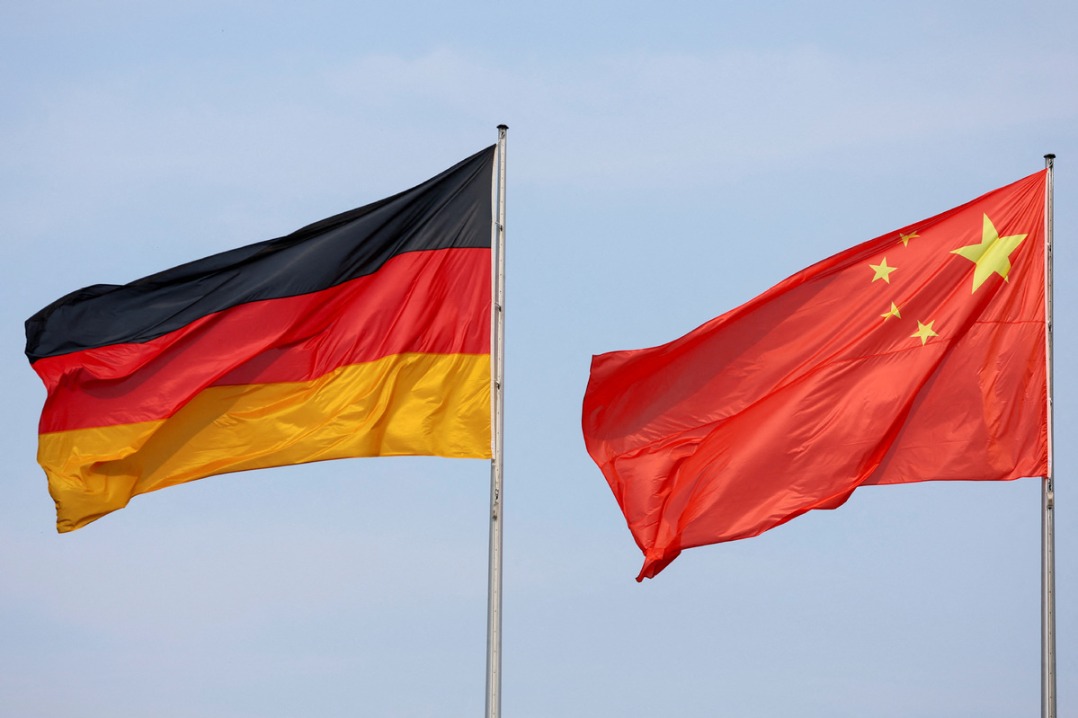Full text: China’s Arctic Policy

I. The Arctic Situation and Recent Changes
The Arctic is situated at a special geographical location. It commonly refers to the area of land and sea north of the Arctic Circle (approximately 66 degrees 34 minutes N), totaling about 21 million square kilometers. In the context of international law, the Arctic includes the northernmost landmasses of Europe, Asia and North America adjacent to the Arctic Ocean and the relevant islands, and a combination of sea areas within national jurisdiction, high seas, and the Area in the Arctic Ocean. There is no single comprehensive treaty for all Arctic affairs. The Charter of the United Nations, the United Nations Convention on the Law of the Sea (UNCLOS), the Spitsbergen Treaty and other treaties and general international law govern Arctic affairs at present.
The continental and insular land territories in the Arctic cover an area of about 8 million square kilometers, with sovereignty over them belonging to Canada, Denmark, Finland, Iceland, Norway, Russia, Sweden and the United States, respectively. The Arctic Ocean covers an area of more than 12 million square kilometers, in which coastal States and other States share maritime rights and interests in accordance with international law. These coastal States have within their jurisdiction internal waters, territorial seas, contiguous zones, exclusive economic zones, and continental shelves in the Arctic Ocean. Certain areas of the Arctic Ocean form part of the high seas and the Area.
States from outside the Arctic region do not have territorial sovereignty in the Arctic, but they do have rights in respect of scientific research, navigation, overflight, fishing, laying of submarine cables and pipelines in the high seas and other relevant sea areas in the Arctic Ocean, and rights to resource exploration and exploitation in the Area, pursuant to treaties such as UNCLOS and general international law. In addition, Contracting Parties to the Spitsbergen Treaty enjoy the liberty of access and entry to certain areas of the Arctic, the right under conditions of equality and, in accordance with law, to the exercise and practice of scientific research, production and commercial activities such as hunting, fishing, and mining in these areas.
The Arctic boasts a unique natural environment and rich resources, with most of its sea area covered under thick ice for most of the year. The Arctic natural environment is now undergoing rapid changes. Over the past three decades, temperature has been rising continuously in the Arctic, resulting in diminishing sea ice in summer. Scientists predict that by the middle of this century or even earlier, there may be no ice in the Arctic Ocean for part of the year. On the one hand, melting ice in the Arctic has led to changes in the natural environment, or possibly can result in accelerated global warming, rising sea levels, increased extreme weather events, damaged biodiversity, and other global problems. On the other, with the ice melted, conditions for the development of the Arctic may be gradually changed, offering opportunities for the commercial use of sea routes and development of resources in the region. Commercial activities in the region will have considerable impact on global shipping, international trade and energy supply, bring about major social and economic changes, and exert important influence on the way of work and life of Arctic residents including the indigenous peoples. They may also pose a potential threat to the ecological environment of the Arctic. The international community faces the same threat and shares the same future in addressing global issues concerning the Arctic.
II. China and the Arctic
China is an important stakeholder in Arctic affairs. Geographically, China is a "Near-Arctic State", one of the continental States that are closest to the Arctic Circle. The natural conditions of the Arctic and their changes have a direct impact on China's climate system and ecological environment, and, in turn, on its economic interests in agriculture, forestry, fishery, marine industry and other sectors.
China is also closely involved in the trans-regional and global issues in the Arctic, especially in such areas as climate change, environment, scientific research, utilization of shipping routes, resource exploration and exploitation, security, and global governance. These issues are vital to the existence and development of all countries and humanity, and directly affect the interests of non-Arctic States including China. China enjoys the freedom or rights of scientific research, navigation, overflight, fishing, laying of submarine cables and pipelines, and resource exploration and exploitation in the high seas, the Area and other relevant sea areas, and certain special areas in the Arctic Ocean, as stipulated in treaties such as the UNCLOS and the Spitsbergen Treaty, and general international law. As a permanent member of the UN Security Council, China shoulders the important mission of jointly promoting peace and security in the Arctic. The utilization of sea routes and exploration and development of the resources in the Arctic may have a huge impact on the energy strategy and economic development of China, which is a major trading nation and energy consumer in the world. China’s capital, technology, market, knowledge and experience is expected to play a major role in expanding the network of shipping routes in the Arctic and facilitating the economic and social progress of the coastal States along the routes. China has shared interests with Arctic States and a shared future with the rest of the world in the Arctic.
China has long been involved in Arctic affairs. In 1925, China joined the Spitsbergen Treaty and started to participate in addressing the Arctic affairs. Since then, China has exerted more efforts in the exploration of the Arctic, expanding the scope of activities, gaining more experience and deepening cooperation with other participants. China's membership in the International Arctic Science Committee in 1996 marked its more active participation in scientific research in the Arctic. Since 1999, China has organized a number of scientific expeditions in the Arctic, with its research vessel Xue Long (Snow Dragon) as the platform. In 2004, China built the Arctic Yellow River Station in Ny Alesund in the Spitsbergen Archipelago. By the end of 2017, China has carried out eight scientific expeditions in the Arctic Ocean, and conducted research for 14 years with the Yellow River Station as the base. Using its research vessel and stations as platforms, China has gradually established a multi-discipline observation system covering the sea, ice and snow, atmosphere, biological, and geological system of the Arctic. The year 2005 saw China as the first Asian country to host the Arctic Science Summit Week, a high-level conference on Arctic affairs. In 2013, China became an accredited observer to the Arctic Council. In recent years, Chinese companies have begun to explore the commercial opportunities associated with Arctic shipping routes. China's activities in the Arctic have gone beyond mere scientific research, and expanded into diverse areas of Arctic affairs including the platforms of global governance, regional cooperation, and bilateral and multilateral affairs, and such disciplines as scientific research, ecological environment, climate change, economic development, and cultural exchanges. As an important member of the international community, China has played a constructive role in the formulation of Arctic-related international rules and the development of its governance system. The Silk Road Economic Belt and the 21st-century Maritime Silk Road (Belt and Road Initiative), an important cooperation initiative of China, will bring opportunities for parties concerned to jointly build a "Polar Silk Road", and facilitate connectivity and sustainable economic and social development of the Arctic.
III. China's Policy Goals and Basic Principles on the Arctic
China's policy goals on the Arctic are: to understand, protect, develop and participate in the governance of the Arctic, so as to safeguard the common interests of all countries and the international community in the Arctic, and promote sustainable development of the Arctic.
To understand the Arctic, China will improve the capacity and capability in scientific research on the Arctic, pursue a deeper understanding and knowledge of the Arctic science, and explore the natural laws behind its changes and development, so as to create favorable conditions for mankind to better protect, develop, and govern the Arctic.
To protect the Arctic, China will actively respond to climate change in the Arctic, protect its unique natural environment and ecological system, promote its own climatic, environmental and ecological resilience, and respect its diverse social culture and the historical traditions of the indigenous peoples.
To develop the Arctic, China will improve the capacity and capability in using applied Arctic technology, strengthen technological innovation, environmental protection, resource utilization, and development of shipping routes in the Arctic, and contribute to the economic and social development of the Arctic, improve the living conditions of the local people and strive for common development.
To participate in the governance of the Arctic, China will participate in regulating and managing the affairs and activities relating to the Arctic on the basis of rules and mechanisms. Internationally, China is committed to the existing framework of international law including the UN Charter, UNCLOS, treaties on climate change and the environment, and relevant rules of the International Maritime Organization, and to addressing various traditional and non-traditional security threats through global, regional, multilateral and bilateral mechanisms, and to building and maintaining a just, reasonable and well-organized Arctic governance system. Domestically, China will regulate and manage Arctic-related affairs and activities within its jurisdiction in accordance with the law, steadily enhance its ability to understand, protect and develop the Arctic, and actively participate in international cooperation in Arctic affairs.
Through all the above efforts to understand, protect, develop and participate in the governance of the Arctic, China will work with all other countries to build a community with a shared future for mankind in the Arctic region. While pursuing its own interests, China will pay due regard to the interests of other countries and the broader international community, bear in mind the importance of the protection and development of the Arctic, and of keeping in proper balance its current and long-term interests, so as to promote the sustainable development of the Arctic.
In order to realize the above-mentioned policy goals, China will participate in Arctic affairs in accordance with the basic principles of "respect, cooperation, win-win result and sustainability".
"Respect" is the key basis for China's participation in Arctic affairs. Respect should be reciprocal. It means all States should abide by international treaties such as the UN Charter and the UNCLOS, as well as general international law. They should respect the sovereignty, sovereign rights, and jurisdiction enjoyed by the Arctic States in this region, respect the tradition and culture of the indigenous peoples, as well as respect the rights and freedom of non-Arctic States to carry out activities in this region in accordance with the law, and respect the overall interests of the international community in the Arctic.
"Cooperation" is an effective means for China's participation in Arctic affairs. It means establishing a relationship of multi-level, omni-dimensional and wide-ranging cooperation in this area. Through global, regional, multilateral and bilateral channels, all stakeholders — including States from both inside and outside the Arctic, intergovernmental organizations, and nonstate entities — are encouraged to take part in cooperation on climate change, scientific research, environmental protection, shipping route development, resource utilization and cultural activities.
"Win-win result" is the value pursuit of China's participation in Arctic affairs. It means all stakeholders in this area should pursue mutual benefit and common progress in all fields of activities. Such cooperation should ensure that the benefits are shared by both Arctic and non-Arctic States as well as by nonstate entities, and should accommodate the interests of local residents including the indigenous peoples. It should also help to promote coordinated development of activities in all fields to ensure the harmony between natural conservation and social development.
"Sustainability" is the fundamental goal of China's participation in Arctic affairs. This means promoting the sustainable development of the Arctic by ensuring the sustainability of environmental protection, resource utilization and human activities in the area. It means realizing harmonious coexistence between man and nature, better coordination between ecological protection, economic growth and social progress, better balance between utilization, management and protection, and intergenerational equity.
MOST POPULAR
- 1 A look at China's economy in Q1 of 2024
- 2 China to remove foreign ownership restrictions in value-added telecom services in pilot areas
- 3 Query service of A Guide to Working and Living in China as Business Expatriates launched
- 4 Clear negative lists to speed up services trade
- 5 Canton Fair opens in China with surge in overseas purchasers
Editors' Picks
 Infographic:
How to understand China's production capacity
Infographic:
How to understand China's production capacity
 Infographic:
Milestones of China's journey to space
Infographic:
Milestones of China's journey to space
 Infographic:
A look at China's economy in Q1 of 2024
Infographic:
A look at China's economy in Q1 of 2024
 Infographic:
China to remove foreign ownership restrictions in value-added telecom services in pilot areas
Infographic:
China to remove foreign ownership restrictions in value-added telecom services in pilot areas
 Infographic:
2023 Sino-German investment and trade in numbers
Infographic:
2023 Sino-German investment and trade in numbers


